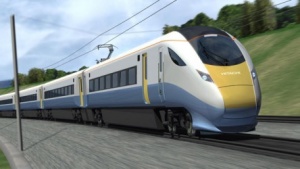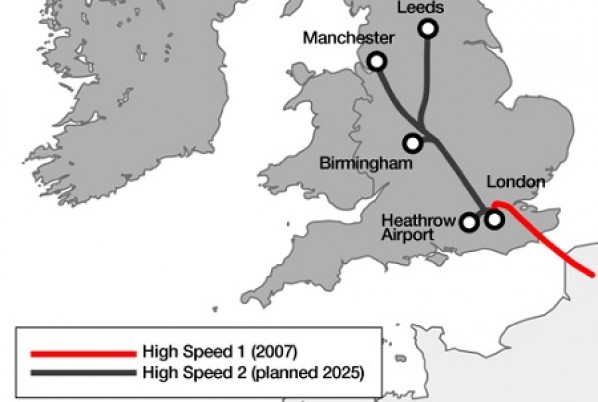UK launches high-speed rail consultation

Tourism in the UK could be radically altered by the development of a new high-speed rail line linking London with the north of the country.
As many as six million passengers could move from air travel to the line when it is completed in 2030 the coalition government argues, potentially hitting low-cost carries the hardest.
Launching one of the biggest public consultations ever undertaken today transport secretary, Phillip Hammond, said: “High speed rail offers us a once-in-a-generation opportunity to transform the way we travel in the 21st century and would help us build a modern economy fit for the future.”
The government is proposing a ‘Y’ shaped network linking London, the West Midlands, Manchester and Leeds, with stations in South Yorkshire and the East Midlands, and links to existing lines to enable through-running services to other cities including Liverpool, Newcastle, Glasgow and Edinburgh.
The scheme would deliver around £44 billion of benefits and would cut journey times between London and other major cities by as much as an hour.
A further nine million passengers are expected to transfer from road to rail once the project is completed.
“Countries across Europe and Asia are already pressing ahead with ambitious plans for high speed rail, while some of our key rail arteries are getting ever closer to capacity,” added Hammond.
“We cannot afford to be left behind - investing in high speed rail now is vital to the prosperity of future generations.”
The proposed network would be delivered in two phases - the first a line from London to the West Midlands, and the second the onward legs to Manchester and Leeds.

The British government is proposing a ‘Y’ shaped rail link with the north of the country
Stop HS2
However, the plans have been strongly criticised by opposition groups.
Stop HS2 has accused the government over overstating demand for high-speed rail, while also criticised it for “ignoring” the environmental impact of the scheme.
HS2 also branded the potential shift from air to rail travel as “unrealistic”; assuming an increase of 178 per cent by 2033, while the domestic air travel market is in decline.
Lizzy Williams, chairman of the Stop HS2 organisation, said the route would only benefit London while there was no economic or environmental case for it.
“The business case for HS2 does not promise economic growth that will benefit the country,” she explained.
“It is London who will be the winner overall.”

